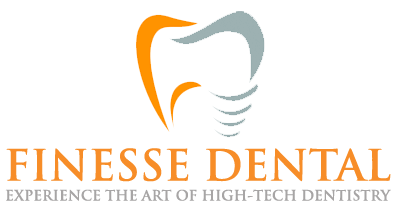If you’ve ever experienced tooth pain that seems to defy logical explanation, you might be dealing with sinus tooth pain. This phenomenon occurs when a sinus infection or pressure affects your teeth, particularly the upper ones. Understanding this intricate relationship between your sinuses and dental health is crucial for effective treatment and pain relief.
Getting to Know Your Maxillary Sinuses
The maxillary sinuses are the largest in the body and are near the cheekbones. Inflammation or infection in these sinuses can exert pressure on the roots of your upper teeth, leading to what is known as sinus toothache. This pressure can cause severe pain that feels very much like a dental problem, even though the actual source is sinus-related.
Recognising the Signs of Sinus Infections
Sinus infections come with various symptoms that can impact your overall well-being. These include:
- Nasal congestion and discharge
- Facial pain or pressure
- Headache
- Reduced sense of smell
- Cough
- Sore throat
When these symptoms persist for over a week, they often indicate an acute sinus infection requiring medical attention.
How Sinus Infections Cause Tooth Pain
Sinus infections, or sinusitis, can lead to various symptoms, including facial pain and toothache. The maxillary sinuses, located just above the upper teeth, are often the culprits. When these sinuses become inflamed or infected, the pressure can transfer to the roots of your upper teeth, causing sinus-related toothache, discomfort, or pain that mimics a dental problem.
How to Find Relief from Sinus Tooth Pain
Managing sinus tooth pain effectively involves addressing both the sinus infection and the tooth pain. Here are some strategies to help alleviate discomfort:
Over-the-Counter Medications: Pain relief medications such as ibuprofen or acetaminophen can help reduce sinus pressure and tooth pain.
Decongestant Nasal Sprays: Using decongestant nasal sprays can help reduce sinus congestion, thereby relieving sinus pressure and associated tooth pain.
Nasal Irrigation: Nasal irrigation with a saline solution can clear the nasal passages and sinus cavities, reducing inflammation and pressure.
Staying Hydrated: Drinking plenty of water helps thin mucus and promote drainage, which can relieve sinus pressure and tooth pain.
Home Remedies: Applying a warm compress to your face can reduce sinus pressure and soothe tooth pain. Inhaling steam from a bowl of hot water or a hot shower can also help clear the nasal passages.
Dental Treatments:
- Root Canal: If a dental infection is the cause.
- Tooth Extraction: In severe cases of dental abscesses.
When Should You See a Doctor?
If your symptoms persist for more than a week or if you experience severe pain, it’s important to consult a doctor. Chronic sinusitis or a dental cause such as a dental abscess may require more intensive treatment. Your doctor can help diagnose the root cause of your pain and recommend appropriate treatment options.
The Link Between Sinus Infections and Dental Issues
In some cases, dental problems can lead to sinus infections. Odontogenic maxillary sinusitis, for example, occurs when a dental infection spreads to the maxillary sinuses. To prevent sinus problems, it’s essential to maintain good dental hygiene and address any dental issues promptly.
Understanding Referred Pain
Referred pain occurs when pain is felt in a location different from its source. In the case of sinus infections, the inflammation and pressure in the sinuses can cause referred pain in the teeth. This is why sinus tooth pain often feels like a dental issue, even though it’s not.
Can Sinus Infections Affect the Lower Teeth?
While it’s less common, sinus infections can sometimes cause pain in the lower teeth. This typically happens if the infection or inflammation spreads to other sinus cavities, such as the ethmoid or frontal sinuses, creating pressure that affects a broader upper body area.
Acute Sinusitis vs. Chronic Sinusitis
Understanding the differences between acute and chronic sinusitis is crucial for effective treatment and management. While both conditions affect the sinuses, their duration, causes, and treatment approaches can vary significantly. Here’s a closer look at what sets them apart and how to manage each type.
Acute Sinusitis
Acute sinusitis is a short-term infection typically lasting less than four weeks. A viral infection often causes it and can be managed with home remedies and over-the-counter treatments.
Chronic Sinusitis
Chronic sinusitis, on the other hand, lasts for more than 12 weeks and may require more intensive treatment, such as prescription medications or even surgery. It can significantly impact quality of life, causing persistent symptoms that can interfere with daily activities.
The Daily Struggle: Sinus Pressure and Its Impact on Life
Sinus pressure can be debilitating, affecting your ability to breathe, sleep, and concentrate. It can also lead to secondary issues like sinus tooth pain, making distinguishing between a sinus problem and a dental issue difficult.
Why Your Nasal Canal Matters
The nasal canal plays a crucial role in sinus health. It filters, warms, and humidifies the air we breathe. Keeping the nasal canal clear and healthy can prevent sinus infections and the associated discomforts.
Sinus Pain vs. Tooth Pain: How to Tell the Difference
Distinguishing between sinus pain and tooth pain can be challenging due to their overlapping symptoms. However, understanding the key differences can help you identify the root cause of your discomfort and seek appropriate treatment. Here’s a comparative analysis to guide you.
Sinus Pain
- Generalised pain in the upper rear teeth.
- Accompanied by sinus symptoms.
- Pressure worsens when bending over.
Tooth Pain
- Localised pain in a single tooth.
- No accompanying sinus symptoms.
- Pain worsens when chewing or touching the tooth.
The Impact of Maxillary Sinusitis on Oral Health
Maxillary sinusitis can significantly impact oral health. The proximity of the maxillary sinuses to the upper teeth means that any inflammation or infection can quickly translate to dental pain, making it essential to address sinus issues promptly.
Why It’s Crucial to Address Sinus Blockage
Sinus blockage can lead to a build-up of pressure and infection, causing severe pain and discomfort. Decongestants, nasal sprays, and other treatments to clear the sinuses can prevent these issues.
Taking Control of Sinus Tooth Pain: Your Action Plan

Maintaining good sinus and dental health can prevent sinus tooth pain and allow you to enjoy a pain-free, healthy life. Stay proactive, stay informed, and take control of your sinus and dental health today.
Contact us at Finesse Dental if you have symptoms of sinus tooth pain at (02) 8806 0790.
Note: Any surgical or invasive procedure carries risks. Before proceeding, you should seek a second opinion from an appropriately qualified health practitioner.
References:
ScienceDirect. (n.d.). Nasal cavity. Retrieved from https://www.sciencedirect.com/topics/medicine-and-dentistry/nasal-cavity
Cleveland Clinic. (n.d.). Sinusitis. Retrieved from https://my.clevelandclinic.org/health/diseases/17701-sinusitis
Colgate. (n.d.). Sinus infection tooth pain relief. Retrieved from https://www.colgate.com/en-za/oral-health/adult-oral-care/sinus-infection-tooth-pain-relief-0116


